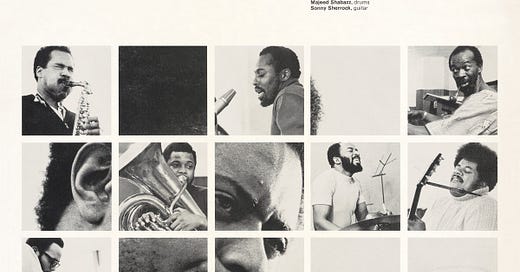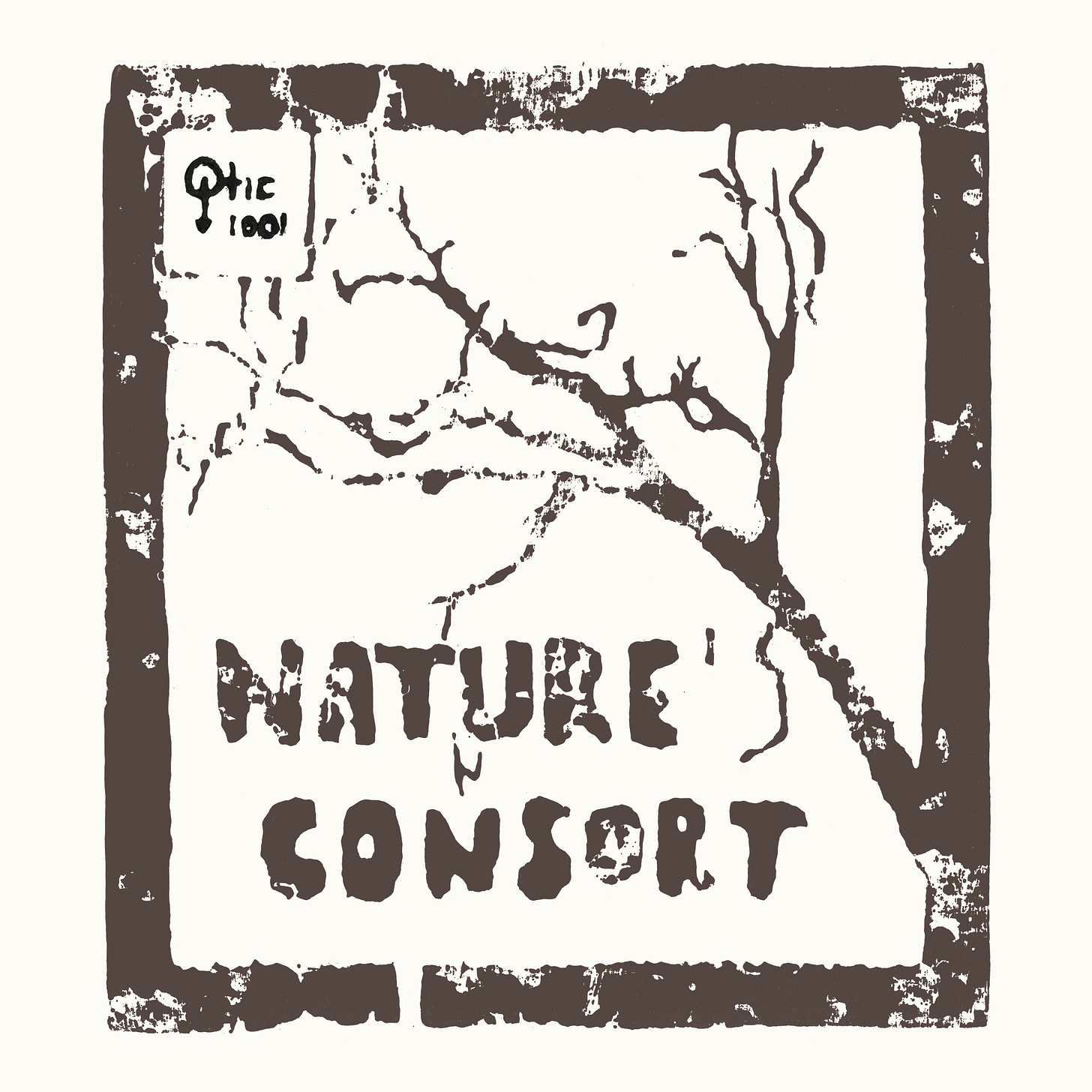Rabble Without A Cause, April 16: Pharoah Sanders and Nature's Consort recordings from 1969
Two new reissues of seminal releases recorded in 1969: "Izipho Zam (My Gifts)" by Pharaoh Sanders and "Nature's Consort" by Nature's Consort
Pharoah Sanders' “Izipho Zam (My Gifts)” is a groundbreaking jazz masterpiece. Recorded in 1969 and released in 1973 on the Strata-East record label, the album featured a 13-member ensemble:
Pharoah Sanders: Tenor Saxophone, Flute, Percussion, Vocals
Howard Johnson: Tuba
Sonny Fortune: Alto Saxophone, Flute
Lonnie Liston Smith: Piano
Sonny Sharrock: Guitar
Cecil McBee: Bass
Sirone (Norris Jones): Bass
Billy Hart: Drums
Chief Bey: African drums
Nat Bettis: Percussion
Tony Wiles: Percussion
Leon Thomas: Percussion, Vocals
Majeed Shabbaz: Drums
Historically, this has been a difficult album to find - as demonstrated by its resale value on Discogs of about $150. Fortunately, we now have a reissue at a more affordable price point.
On the show, we will hear the second side (the title track).
Nature’s Consort came from the New York City loft scene. The group was:
Mark Whitecage (Tenor Sax)
James Duboise (Trumpet)
Robert Naughton (Piano)
Mario Pavone (Bass)
Lawrence Cook (Percussion)
Their self-titled release was a DIY effort, recorded live in New Haven, Connecticut in October 1969. The original vinyl release has been difficult to find and, according to Discogs, has ranged in price from 112 to 700 dollars (there is one currently for sale for over 750 dollars). Fortunately, Aguirre Records has reissued this album, again at a much more affordable price point.
Robert “Bobby” Naughton wrote the introduction to the music on the liner notes for the album:
The music presented here is improvised from a pre-conceived statement usually appearing at the beginning and end of each song form. This in much the same manner as a panel discussion in which a topic is presented and from that the only limitations as to how far in or out one may go relating to the subject depends on his resources and those of the participating group. This process eliminates generalizing as a large group might do and individualizes the subject, allowing each participant to create as much consonance or dissonance as he may desire. With this objective the musicians prepare themselves in much the same way as an athlete i.e. disicipline and practice individually, waiting to leap to action when called upon. This creates in an abstract form such as music, enormous solo possibilities individually and simultaneously, eventually resulting in an overall group harmony. Listen.
When released, the album did not get much coverage in the press. However, Nat Hentoff had some kind words about the release:
Theirs is high-risk improvisation, dependent on unfailing attentiveness and the ability to anticipate each other. Those qualities lacking, a soloist will suddenly sound-and feel-as if he has fallen down an elevator shaft ....
The Musicians on Nature's Consort more than survive the challenge. In some of the passages, moreover, there is a subtlety of imaginative interplay on all levels - melodic, textural, rhythmic - which indicates again that so-called "freeform" music requires much judicious instantaneous editing to make even its own kind of sense ....
You can listen to the show live at 11 p.m. on Wednesday at 93.1 on the FM dial or live stream at CKCUFM.com. The show is also available for on demand streaming.






I'm playing a track from this album on my show tomorrow night too, but it's the opener 'Prince of Peace'.
Look forward to the show. The Pharoah Sanders recording sounds like something I should add to my collection. The tuba player Howard Johnson played at the Ottawa Jazz Festival back in the '80s as part of a Jack DeJohnette Special Edition. This was when they had shows on Nepean Point behind the National Gallery. I remember Howard asking the sound engineers to turn up the bass. He said something like 'I know I'm playing a bass instrument (tuba), but I need a bit more bass.'